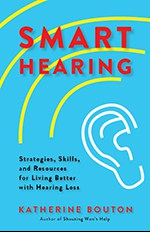Noise is bad for your hearing. This will not be a surprise to anyone.
But this week the American Public Health Association made it official. “Noise is not just a nuisance,” an APHA statement said, “It’s a growing public health hazard and action is long overdue.” Noise was a focus at this year’s annual APHA meeting, which noted that “environmental noise” in particular affects health well beyond hearing loss.
APHA cited everyday sources of noise, like leaf-blowers, construction, and loud music — as well as the widespread use of personal listening devices, which are often turned up dangerously loud. They noted findings that noise is associated with a host of associated health issues: dementia, heart disease, diabetes, sleep disruption, and obesity. (It’s important to remember that “associated with” does not mean “caused by.”)
Comparing environmental noise to second hand smoke, the group urged updating and acting on a 2013 APHA noise policy statement that advocated federal action. Dr. Daniel Fink, founding chair of The Quiet Coalition, a Quiet Communities Inc. program, also urged a change in terminology, making it more like that used by engineers and physicists. The change is from “unwanted noise” to “unwanted and/or harmful sound.”
This week’s announcement also noted that the way we measure sound now does not necessarily reflect the real-world impact of noise on health and communities. Low-frequency components in landscape, construction, and air traffic noise may vary from one instance to the next. Dr. Jamie Banks, executive director of Quiet Communities, Inc, noted that harmful noise from a gas-powered leaf blower carries a longer distance than that from a battery electric blower even though both are rated at the same decibel level. “We have the technology to better understand the noise characteristics that impact health and community,” Dr. Banks said. “It’s time to employ it.”
Dr. Arline Bronzaft, a City University of New York professor emerita, has been making the case against urban noise for decades. She urged APHA members to renew support for the organization’s noise control policy published in 2013. “The evidence on noise as a public health hazard was convincing 40 years ago,” Dr. Bronzaft said. “Now, despite even stronger evidence linking noise to adverse effects on hearing, the cardiovascular system, metabolism, and psychological health, learning, and cognition, we are not moving forward aggressively enough to reduce the many sources of noise pollution in our communities.”
Two years ago in a column called “Turn Down the Noise,” I wrote about the findings from a poll conducted by the American Speech-Language-Hearing Association. Forty-one percent of those polled said they were concerned that exposure to loud noise may have harmed their hearing. More than 50 percent said they worry that future noise exposure could be harmful to their hearing.
We know noise is bad for our hearing. We have to make a commitment to do something about it.
For more about living with hearing loss, read Smart Hearing, available at Amazon.com, or Shouting Won’t Help, available at Amazon and other booksellers.



